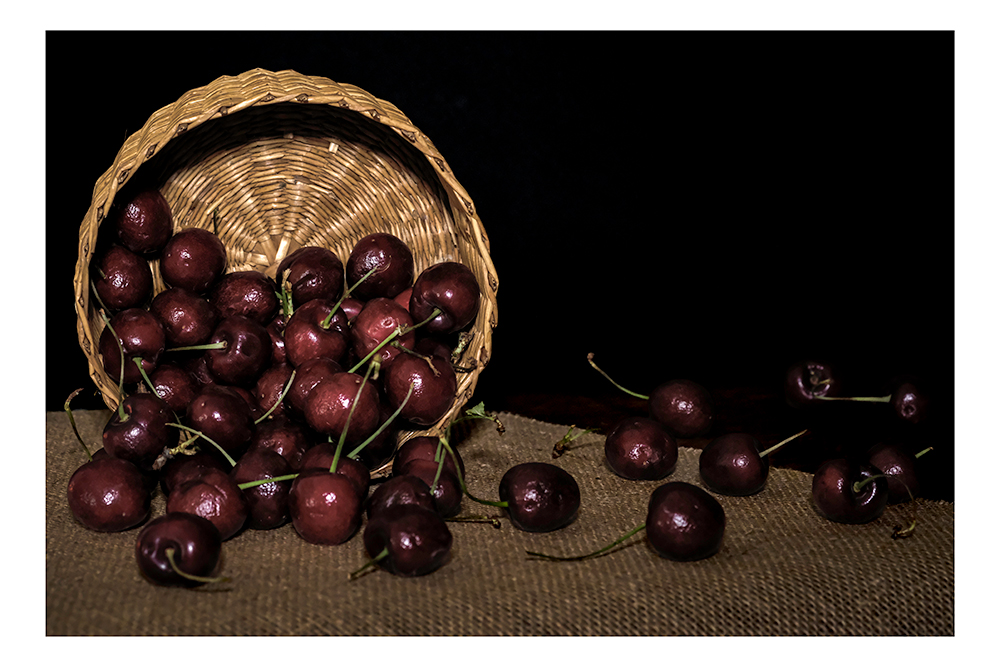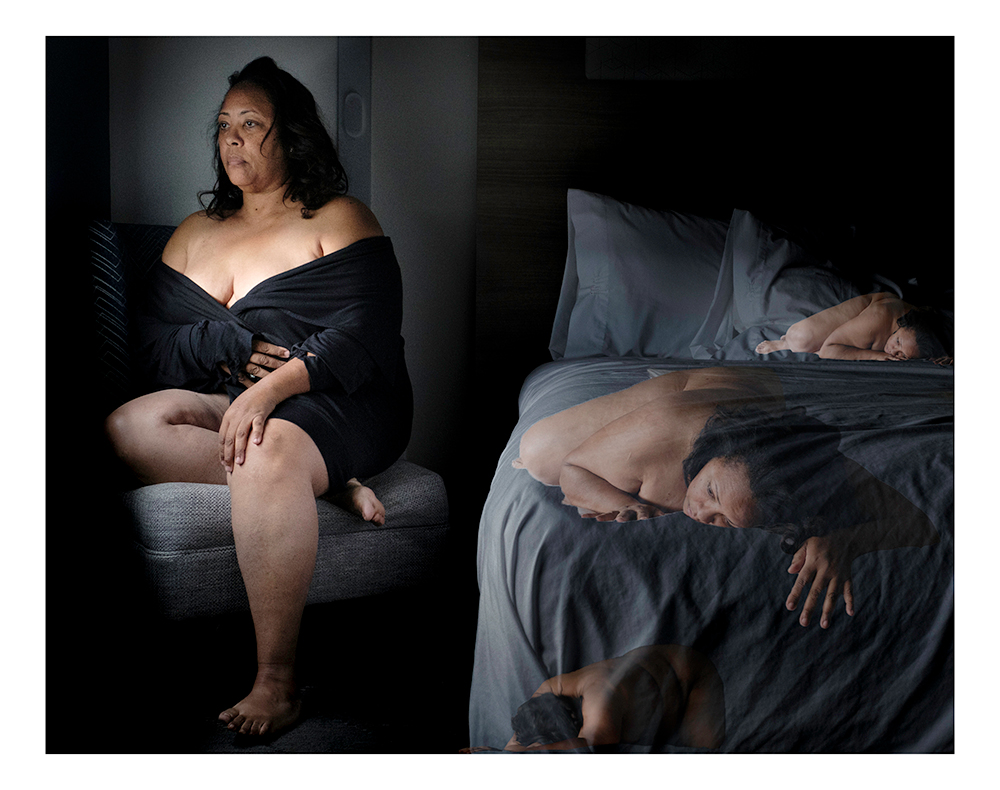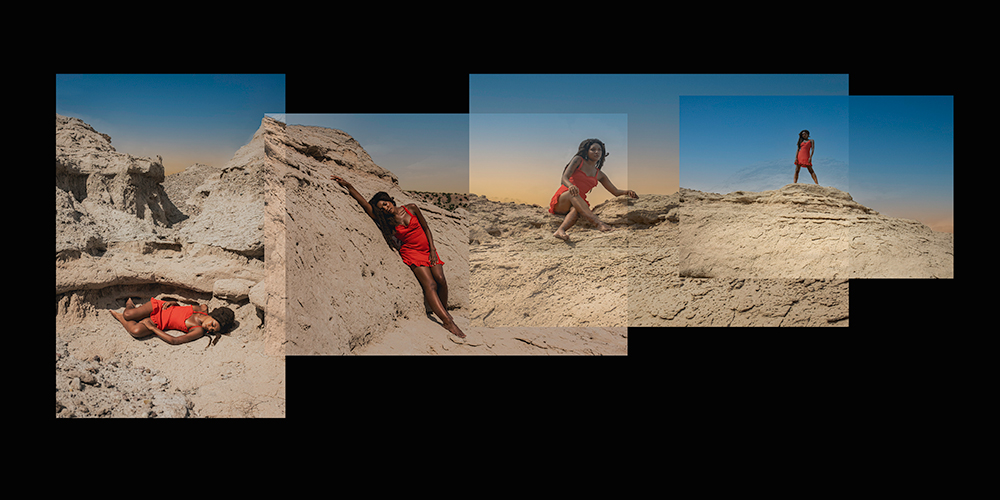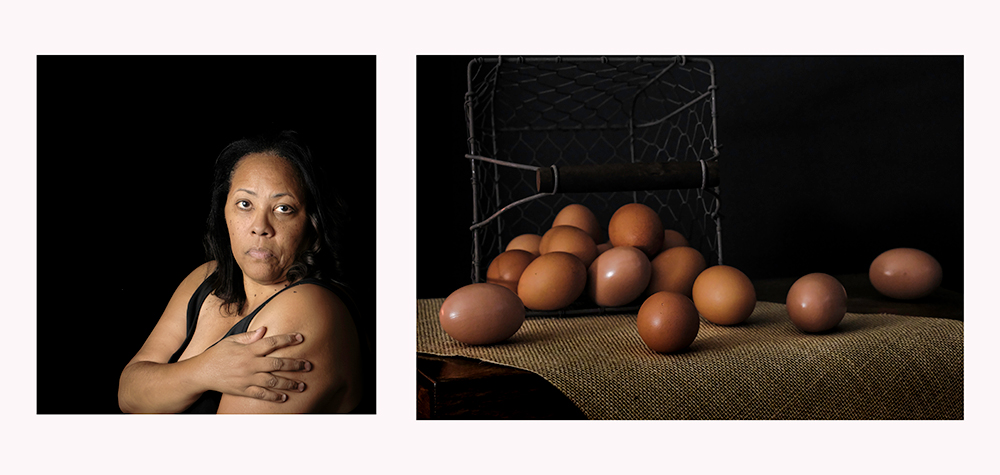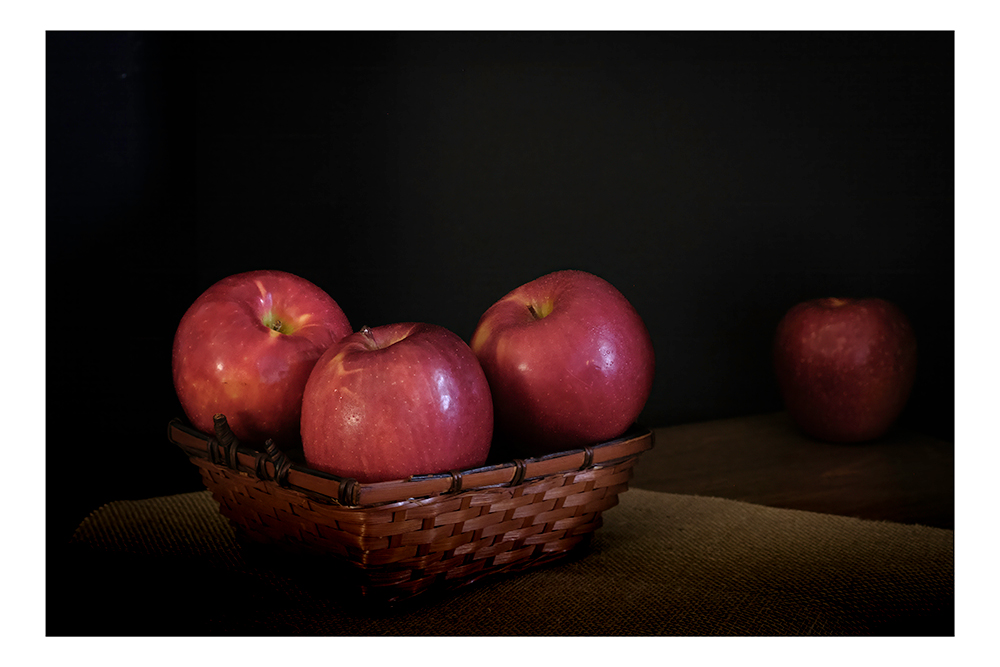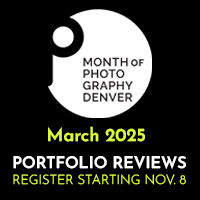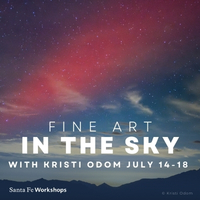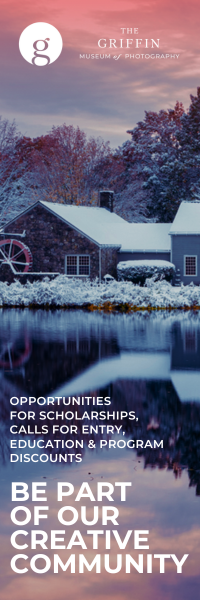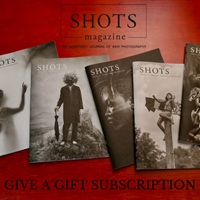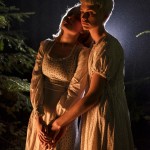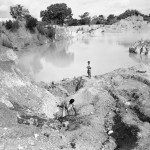Womanhood Week: Benita Mayo
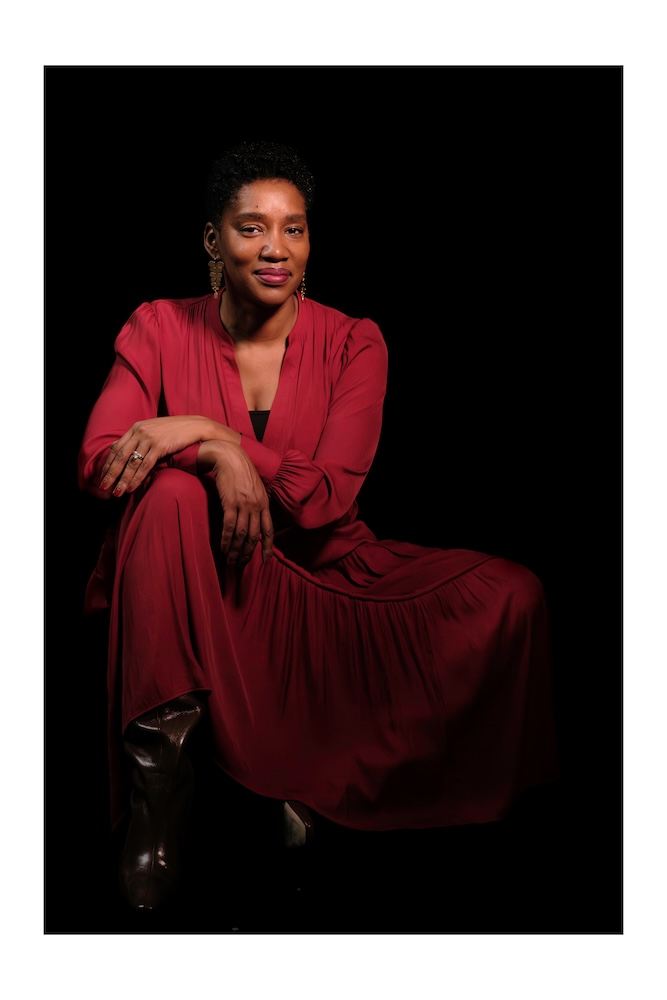
©Benita Mayo, Andrea, age 50 – I feel sexiest when I walk by a mirror and catch a glimpse of myself and realize, sometimes just for a moment, that I look as good as I feel.
This week we will dive into the feminine universe, addressing topics that are often controversial and stigmatized. Considering that October is Menopause Awareness Month, we will have 3 artists with projects developed exclusively on the subject: Jane Weinmann, Benita Mayo and myself (featured on Friday). We will also address violence, sexism and misogyny through the work of Márcia Charnizon and Juliana Sicoli.
Benita Mayo is a visual artist based in Charlottesville VA. She is a resident artist at the McGuffey Art Center and an active member of Charlottesville Black Arts Collective. Mayo holds a B.A. in Rhetoric & Communications from the University of Virginia (UVA), and she was a 2021 Fellow-in-Residence at the UVA Equity Center creating a photo essay highlighting the pregnancy risks that Black women face in the US and the positive benefits of doula support.
Mayo is drawn to the collective female experience, as seen through the lens of a black woman living in the intersection of grief, memory, ancestry genealogy and trauma.
Mayo was the winner in the 23rd Julia Margaret Cameron Award for “Women Seeing Women” category and received Honorable Mention in the portraiture category. Mayo’s work has been featured in publications including Zeke Magazine, Virginia Quarterly Review, SxSE Magazine, Library of Congress and regional Charlottesville VA publications. Mayo’s work has been exhibited at various galleries including the Center for Fine Art Photography, A Smith Gallery and Social Documentary Network. Mayo has been recognized internationally and held in private collections.
IG: @benitamayo
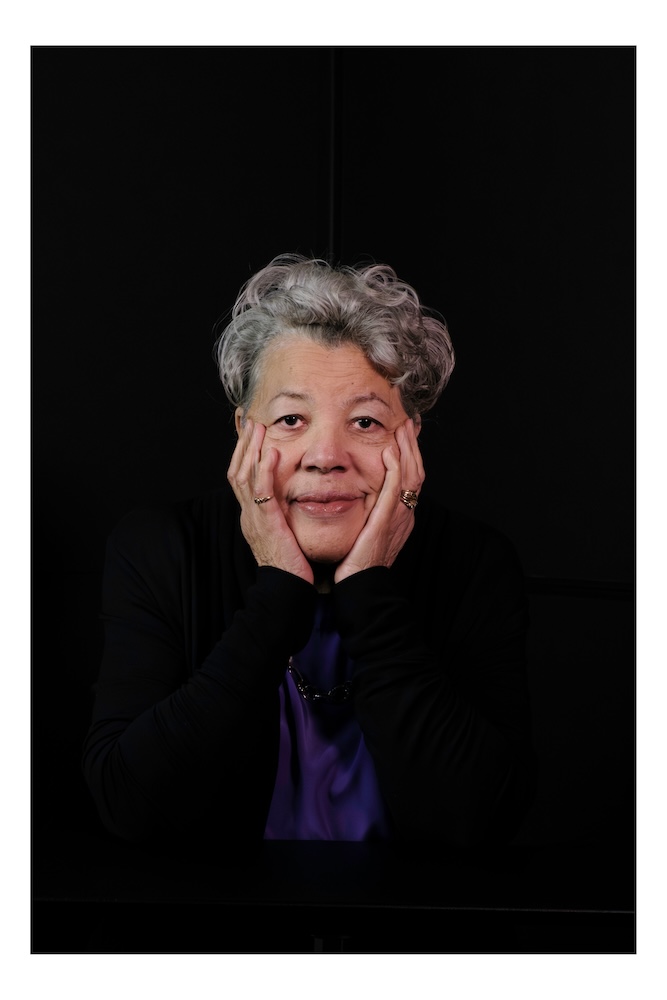
©Benita Mayo, Barbara, age 81 – I learned at a very early age to follow the rules and to respect authority. I was not one to test these expectations. I grew up an only child; however, I was very fortunate to have cousins living close by, a family of eight children.
Womanist: The Tao of Midlife and Menopause
Connecting through the menopausal gaze, this body of work contemplates and explores tropes and stereotypes of midlife and menopause, while celebrating this universal, yet often misunderstood and stigmatized, phase of life.
This project began with my journey into menopause. I entered this ubiquitous phase of life with little information or resources, other than popular culture’s portrayal which gaslights this phase of life with fear, stigma, and shame. Historically, menopause has been treated as a pre-death, a metamorphosis from maiden to crone. A woman’s worth was measured by her reproductive ability and by extension her femininity; therefore, rendering her culturally and socially invisible.
My research revealed that Black women in midlife experience an increase in health disparities and inequalities when compared to white women. Moreover, Black women enter menopause sooner, it lasts longer, and symptoms are more intense when compared to white women. Too often this story is told through the narrow, misogynistic patriarchal lens; but we can do better by embracing a womanist view of menopause in which our experience is validated and lays the groundwork for the next generation. I am telling the story through the lens of Black women aged 50 to 81 whose journey I admire and respect.
Through portraiture and written reflections from each woman, I celebrate these authentic and audacious women. Through their stories, each woman has inspired, uplifted, and encouraged me in a meaningful way by owning their age, beauty, wisdom and power.
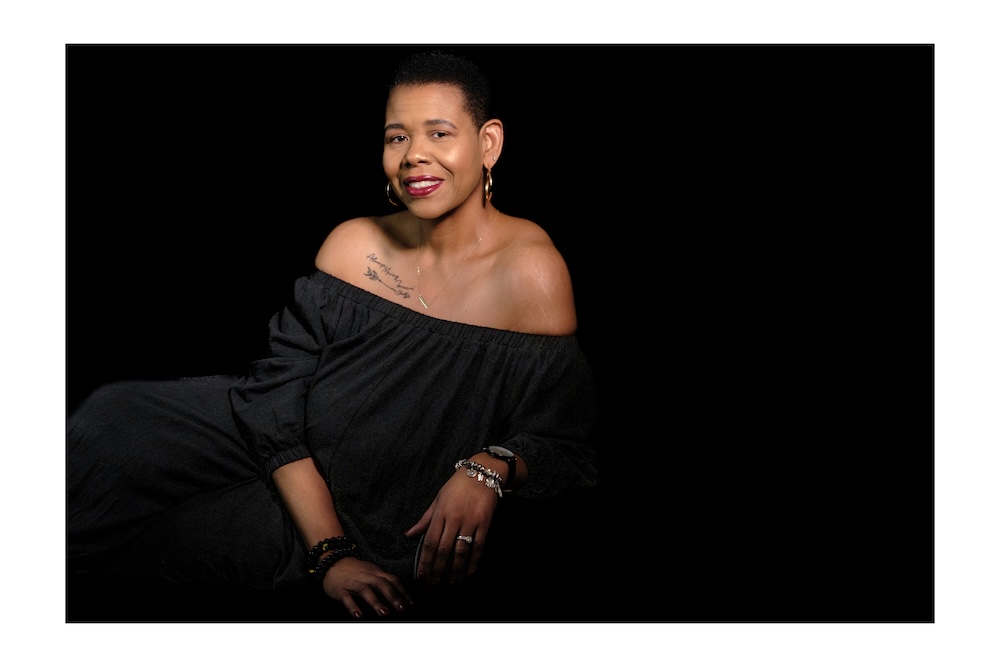
©Benita Mayo, Char, age 51 – I’m learning that life is not a linear journey and sometimes I feel lost. But I hold true to my mantra, ALWAYS. MOVING. FORWARD.
What led you to work with photography? And what keeps you connected to it?
My journey into photography began when I bought my first DLSR before embarking on a trip to Italy. I took a few two-hour workshops on the basics so that I could come back with fabulous pictures. When I returned home to Virginia, I submitted a photo of the Duomo in Florence to a local camera club contest and won a blue ribbon. I was so overjoyed! I wanted to recreate that feeling; so, I joined my local club and took more workshops. Unlike other pursuits which quickly bored me, my interest in photography didn’t wane. It continued to grow and evolve. Landscape photography led me to portraiture and social documentary photography. It’s important to me to share my perspective on stories that matter in hopes that it will help others to process and tell their own stories.
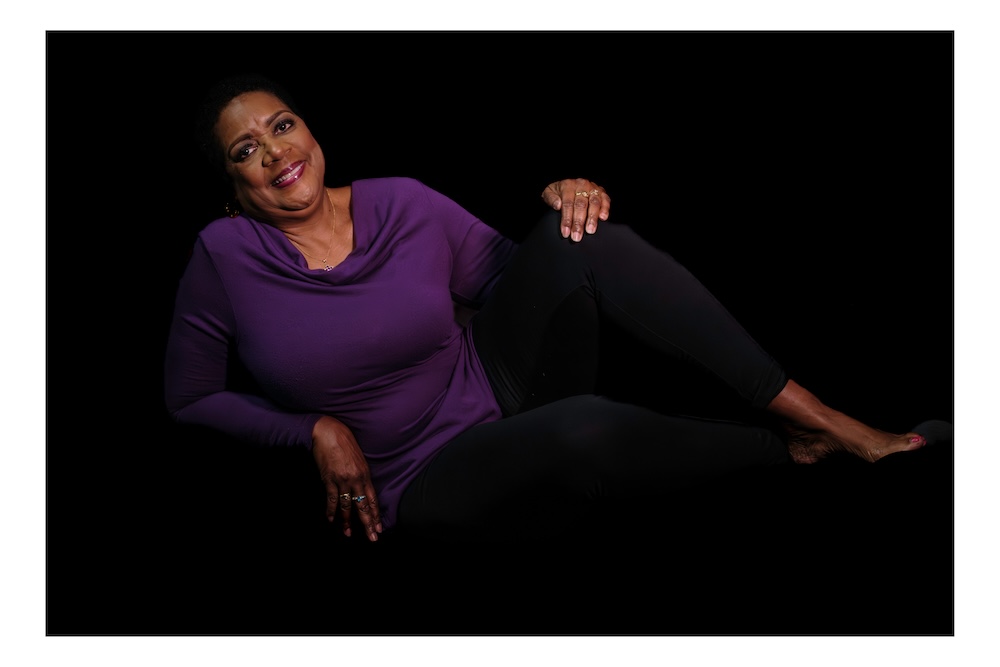
©Benita Mayo, Colena, age 73 – It feels wonderful to be me. I enjoy the freedom and flexibility of retirement from a 9 to 5 job. It’s still hard to believe that I am 73 years old.
What motivates you to start a new project? Do personal experiences influence you when choosing themes for projects?
I have always been on a journey to unearth and examine the stories that live within me –some though my own experience; but most through inheritance. Like most of the world, the year 2020 was a pivotal moment in time. Against the backdrop of COVID, I lost my Dad, became a caretaker of my Mom and was called to steward the stories and the land that have been in my family for five generations. There has been an interesting juxtaposition of my life and my photography which has silently and seamlessly evolved from an exterior to an interior point of view. The journey has been challenging to articulate because the way I experience the world was learned so discretely, that it wasn’t easily recognizable; and what I inherited has not always been visible. As a result, I’m drawn to the collective female experience, through the lens of a black woman living in the intersection of grief, memory, ancestry genealogy and trauma.
A key purpose of my work is to bear witness because growing up, I didn’t feel seen; but I didn’t’ have the words to articulate what I was feeling. Helping others to feel seen starts with a connection – a smile, a kind word or a gentle exchange. I believe everyone desires basic respect and understanding, to be seen, heard and acknowledged; and through my photographs, I want to foster that feeling in others. Also, my focus on “the soft spaces easily overlooked and often ignored,” allows for spaciousness for one’s vulnerabilities and authentic selves to be portrayed. The proximity between myself and the people I am photographing is representative of the type of relationship I want to foster. Therapy has taught me that connecting to one’s core self opens a world of possibilities; and my desire is for others to connect to their primary emotions, dreams and needs.
This is seen in this body of work and with Bearing Witness in which I honor Black women during childbirth but also bear witness to the stark racial disparities in maternal health care in the United States.
What led you to start the “Womanist: The Tao of Midlife and Menopause” series?
Thank you for this question. I believe the seed was planted as a 10-year-old 5th grader starting her period and an embarrassing event at school in which I had to ask my Dad to bring me clean underwear and menstrual pads to school. Much like a fish doesn’t know it’s in water, I didn’t’ know that event would be the beginning of the many traumatizing events that I would collect throughout my life. All these years later, I remember the feeling I had on that day.
The emotion that connects to this project is the feeling of embarrassment, lack of information, support or dialogue about what to expect. It’s laughable now; but I really didn’t think my Dad knew I had started my period.
So, as I approached midlife & menopause, many of those same feelings resurfaced. I’m grateful for the privilege of photography which allowed me to have a visual conversation, explore the tropes and stereotypes of midlife and menopause, while celebrating this universal, yet often misunderstood and stigmatized, phase of life.
This is an on-going project; but the first women I wanted to photograph were those who I have a personal connection. They are women including my mother who have inspired, uplifted or encouraged me in meaningful ways. Moreover, each of them celebrates this phase of life and truly embody their age, beauty, wisdom & power. My favorite aspect of the project has been each woman’s written reflection of what midlife and menopause means to them. I’ve included a snippet in the captions.
More importantly, the project would not have been possible but for the willingness of each woman to unselfishly give of themselves & their image, be vulnerable and to trust me to represent them in the way they want to be seen.
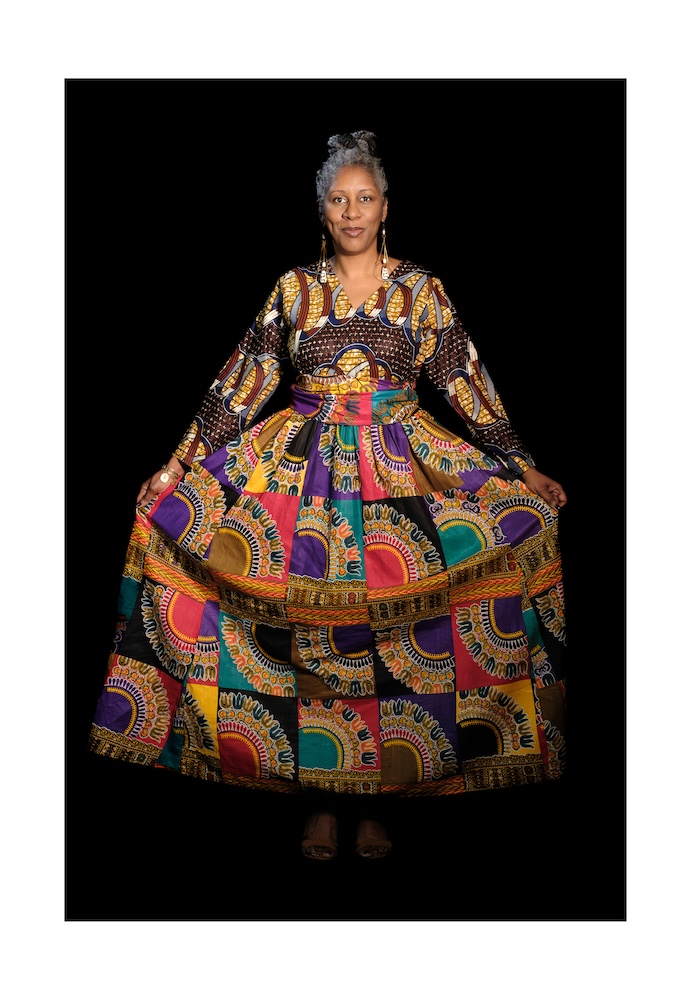
©Benita Mayo, Kimberly, age 57 – I feel fabulous. I have enjoyed every stage of life and appreciate all the experiences that have shaped who I am and who I can be for others.
How do you think photography can help in the discussion of issues related to womanhood?
I recently read that art is an invitation to have a conversation. This made me stop and really consider the impact artists have on affecting change. Photography because of its timelessness allows it to transcend generations! It creates a ripple that I believe ultimately influences our hearts & minds; and once our hearts & minds are engaged, there’s hope for greater tolerance, change and progress. For example, a short list of those that have influenced me include Carrie Mae Weems, Lorna Simpson, Sally Mann, Dawood Bey, Roy DeCarava, Dorothea Lange and Susan Sontag. Each of their contributions created a ripple… ripples that are constantly traveling, influencing & impacting. Big picture, I believe photography will continue to influence cultural attitudes about womanhood leading to transforming the tropes & stereotypes about woman. The first thing that comes to mind is the impact of poets & writers such as Sojourner Truth, Audre Lorde & Alice Walker had on black feminism.
I am but a ripple in a stream; but photography is my way of doing something to contribute to a better world.
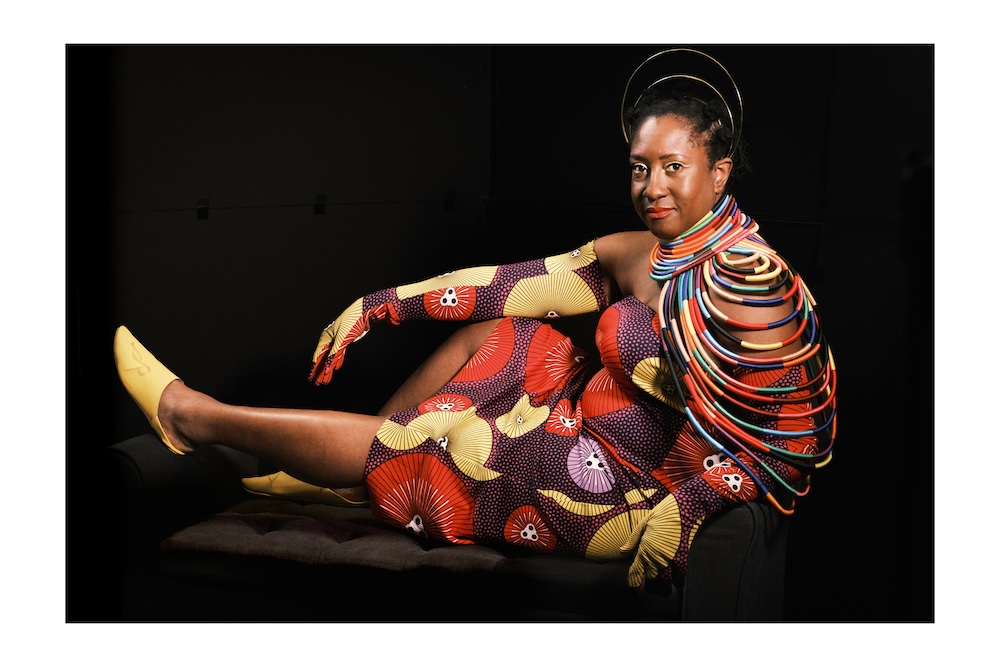
©Benita Mayo, Lisa, age 53 – Women’s aging is fraught rather than celebrated because anxiety propels capitalism faster than joy.
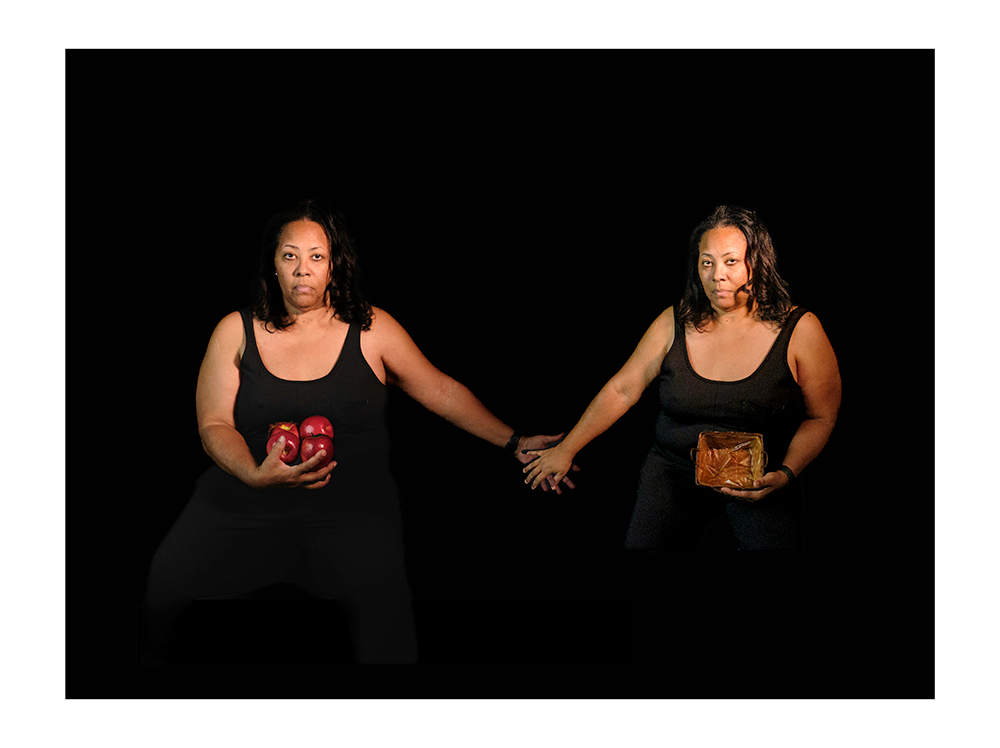
©Benita Mayo, Two Spaces at Once – am the bridge between my past and may potential, and I bring with me the spirit, blessings and good wishes of all who got me here!
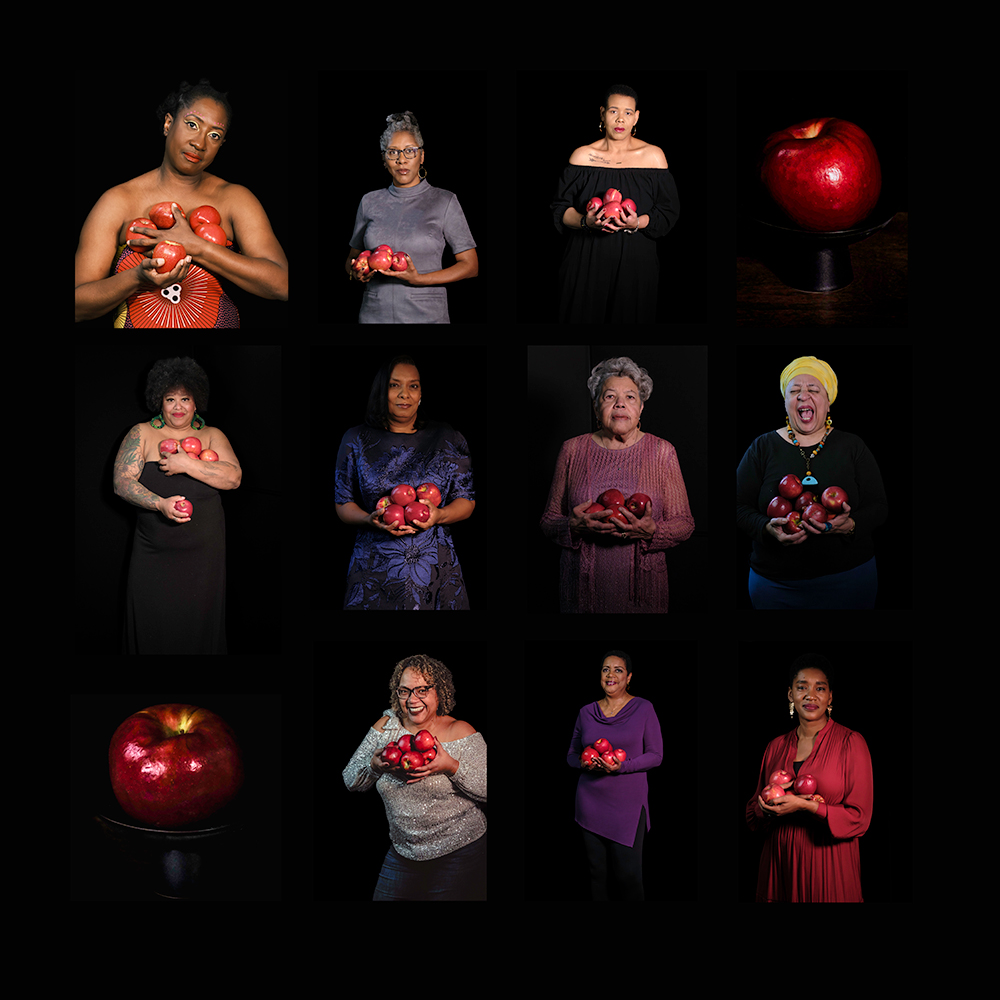
©Benita Mayo, Apple Typology – Breaking through the negative talk to face fears that hide within the shadows.
Born in the Northeast of Brazil and based in São Paulo, Ana Leal is an artist who works primarily with photography. Leal investigates ephemerality and impermanence through records of the minutiae of nature and everyday life. With a strong influence of minimalism and impressionism, her works dialogue with abstraction and have a strong poetic charge.
Leal is a Gold Award winner at the 2020 TIFA and the 15th Julia Margaret Cameron Award Winner in the abstract category. She also received a Bronze Medal at the ND Awards 2021 and Honorable Mentions at the IPA 2021, Rotterdam Photo 2021, Prix de La Photographie Paris 2019, and The 15th Pollux Awards. She completed her MFA at the Miami International University of Arts and Design (2018) and the Professional Photography Course at the Pan-American School in São Paulo (2013). Her work is part of the Florida Museum of Photographic Arts – FMoPA collection.
Instagram:@analealphoto
Posts on Lenscratch may not be reproduced without the permission of the Lenscratch staff and the photographer.
Recommended
-
Smith Galtney in Conversation with Douglas BreaultDecember 3rd, 2024
-
Jordan Eagles in Conversation with Douglas BreaultDecember 2nd, 2024
-
Michael Rababy: CASINOLAND: Tired of WinningNovember 29th, 2024
-
Interview with Tabitha Barnard and Jake Benzinger: “Dead Trees Speak to Me” and Independent Photo Book PublishingNovember 21st, 2024

